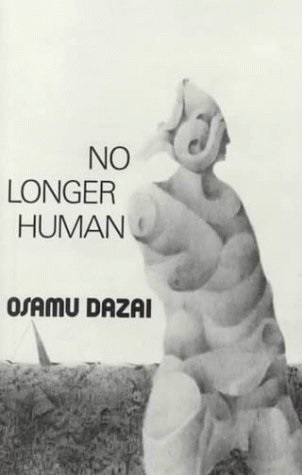TL;DR
Osamu Dazai's 'No Longer Human' explores the life of a troubled man, Ōba Yōzō, who grapples with social alienation and substance abuse, ultimately feeling disqualified from humanity.
What is No Longer Human about
'No Longer Human' is a semi-autobiographical novel by Osamu Dazai that delves into the psyche of Ōba Yōzō, a young man struggling with profound alienation and emotional turmoil in the postwar Japanese society. Caught between the remnants of his aristocratic family's traditions and the encroaching influence of Western ideals, Yōzō’s existence becomes a painful reflection of his inability to connect with others. Dazai artfully portrays Yōzō's descent into despair, narrating his attempts to maintain a facade of joviality while battling addiction and loneliness. The text serves as a poignant commentary on the complexities of human nature and the quest for belonging in an increasingly disjointed world.
No Longer Human 5 Key Takeaways
The struggle for identity and connection.
Dazai vividly illustrates Yōzō's internal conflict as he grapples with his identity against the backdrop of societal expectations, revealing the universal human longing for connection.
Impact of societal change on individual psyche.
The novel highlights how the transition from traditional values to Western influence affects Yōzō's mental state, showcasing the dislocation many feel in rapidly changing cultural landscapes.
The facade of happiness concealing deep sorrow.
Yōzō’s life is marked by a facade of humor that masks his profound sadness, underscoring the theme that outward appearances can often hide inner turmoil.
Substance abuse as a coping mechanism.
Dazai presents Yōzō’s turn to alcohol and drugs as a means of escape from his overwhelming feelings of despair, reflecting the struggles many face with addiction.
The theme of isolation and alienation.
Throughout the novel, Yōzō embodies the feeling of being an outsider, which resonates with readers who have experienced social alienation or emotional estrangement.
Top No Longer Human Quotes
- "I am not human. I am a mere shadow of a human being."
- "I found it impossible to reveal my true self to anyone, so I resorted to wearing a mask of laughter."
- "I am disqualified from being human, and so I wander through life without purpose."
Who should read No Longer Human?
'No Longer Human' is ideal for readers who are interested in psychological studies, literary exploration of identity, and themes of alienation. Those grappling with their own feelings of isolation or seeking a deeper understanding of the complexities of the human condition will find inspiration and reflection in Dazai's poignant narrative.
No Longer Human Best Reviews
- 'No Longer Human' is a haunting exploration of despair and identity, rich with Dazai's introspective prose that resonates deeply with the human experience.' - The New York Times
- 'Dazai's work is a strikingly honest narrative that captures the fragility of the human condition in a way that feels both intimate and universal.' - The Guardian.
People also liked these summaries
No Longer Human FAQs
Is 'No Longer Human' based on a true story?
Yes, 'No Longer Human' is semi-autobiographical, reflecting Dazai's own experiences with depression, social alienation, and substance abuse.
What is the main message of the book?
The main message revolves around the complexities of human nature, the struggle for genuine connection, and the exploration of what it means to be human.
